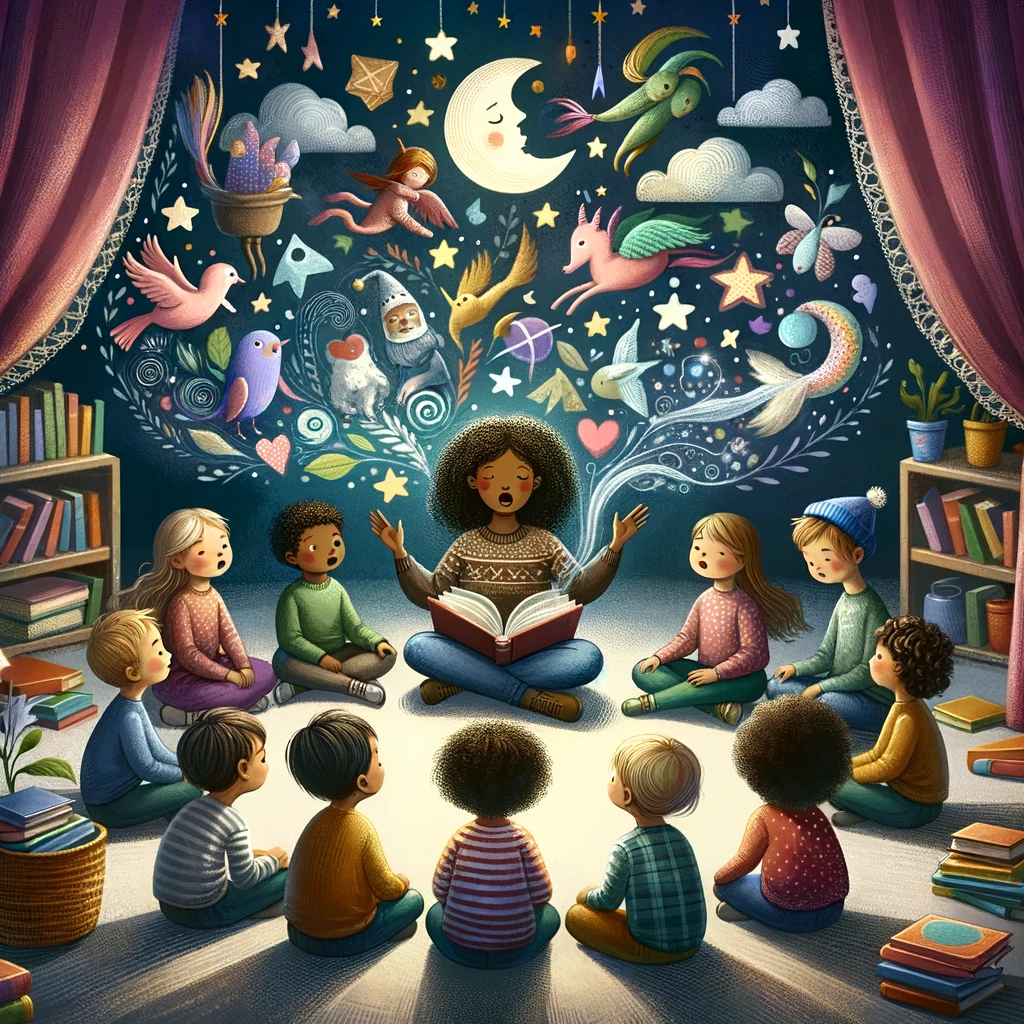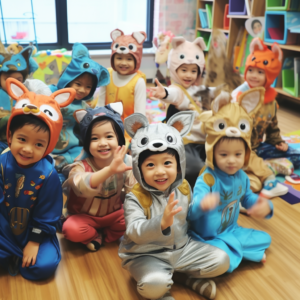The Magic of Storytelling: Its Importance in Child Nurseries
In the tapestry of human culture, storytelling has been an enduring thread, weaving through the ages as a cornerstone of communication, education, and entertainment. This ancient craft transcends mere amusement, serving as a vital conduit for imparting wisdom, values, and knowledge. Its impact is perhaps most profound in the formative years of childhood, where stories open doorways to vast, uncharted realms of imagination and understanding. Within the nurturing confines of child nurseries, storytelling emerges not just as a tradition but as a critical educational strategy, shaping young minds, enriching language skills, and fostering a deep, empathetic connection with the world around them. This article delves deeper into the multifaceted role of storytelling in child nurseries, illuminating its significance in promoting cognitive development, emotional intelligence, and social cohesion among our youngest learners.
Storytelling in nurseries is not a mere pastime; it is an intricate dance of words and imagination that kindles the innate curiosity of children, guiding them through a journey of discovery and learning. Each story, with its unique characters and plots, becomes a mirror reflecting the complexities of life, offering children a framework to decode the world in a relatable and engaging manner. This immersive experience is crucial in the early years, a period marked by rapid neurological development and an insatiable appetite for learning. Through the simple act of storytelling, educators and caregivers harness the power of narrative to fuel cognitive growth, emotional development, and social skills, laying a solid foundation for lifelong learning and personal growth.
The introductory phase of a child’s education is a pivotal time when the seeds of language, empathy, and community are sown. Storytelling acts as a gentle cultivator, nurturing these seeds into blossoming skills that will equip young individuals to navigate the complexities of human experience. It is a tool both ancient and modern, continuously adapting to the evolving landscape of education while retaining its core essence—connecting human hearts and minds across time and space. In the nurturing environment of child nurseries, the magic of storytelling is alive and well, enchanting young audiences with tales of heroism, adventure, and wisdom, and in doing so, preparing them for the grand narrative of life that lies ahead.
Storytelling is a fundamental component in the development of cognitive skills among children. It introduces them to the complexities of language, including vocabulary, grammar, and the nuances of narrative structure. Through stories, children learn new words and concepts, which they incorporate into their own speech. The rhythmic pattern of storytelling also enhances memory retention, making it easier for children to remember details and follow sequences.
Moreover, stories stimulate imagination and curiosity. They transport children to different worlds, times, and perspectives, fostering creativity and critical thinking. Children learn to visualise scenarios, understand cause and effect, and solve problems as they navigate through the twists and turns of a story. This active engagement with the narrative boosts their cognitive flexibility and encourages a lifelong love of learning.

Expanded Cognitive Development and Language Skills
Storytelling is a cornerstone of cognitive development in children, serving as a bridge to the vast world of language and thought. It introduces them not only to the basics of language, such as vocabulary and grammar, but also to the intricate layers of narrative structure—plot, character development, and thematic depth. As children listen to stories, they are subtly absorbing complex linguistic patterns and enriching their lexicon, thereby enhancing their ability to communicate both orally and in written form. This linguistic immersion through storytelling is vital, as it lays the groundwork for literacy skills that are fundamental to future academic success.
Moreover, storytelling’s rhythmic and repetitive patterns play a critical role in bolstering memory retention. Children learn to anticipate narrative sequences and outcomes, which sharpens their ability to focus, remember, and predict. This skill is not limited to storytelling but extends to all areas of learning, making storytelling a vital tool in cognitive conditioning.
The realms of imagination and curiosity that stories unlock are boundless. By transporting young minds to varied settings—be it through fairy tales, legends, or contemporary stories—storytelling invites children to explore diverse worlds, fostering an environment where creativity and critical thinking flourish. This exploration is not passive; it requires children to actively engage with the narrative, visualising scenes, empathising with characters, and grappling with moral dilemmas. Such engagement not only enhances cognitive flexibility but also nurtures problem-solving skills and an inquisitive mindset, foundational elements for a lifelong passion for learning.
Enriched Emotional Intelligence and Empathy
At the heart of storytelling lies its capacity to touch the emotions of its listeners, making it a powerful tool for developing emotional intelligence in children. Stories offer a kaleidoscope of human experiences, enabling children to encounter a broad spectrum of emotions and situations vicariously. Through the triumphs and trials of characters, children learn to name their own feelings and understand the emotional states of others, an essential step in cultivating empathy.
This emotional journey through storytelling allows children to experience the world from various perspectives, recognising the diversity of human experiences and emotions. Such narrative experiences are instrumental in teaching children that every person has their own unique story, feelings, and background, fostering a deep sense of empathy. This skill is crucial not only for personal development but also for navigating social relationships throughout life.
Furthermore, stories act as a safe conduit for children to explore and understand complex emotions and situations. Identifying with characters who overcome adversity, show resilience, or exhibit forgiveness enables children to learn these values experientially. This emotional resonance not only helps children in managing their own emotions but also in developing key virtues such as compassion, resilience, and tolerance.
Enhanced Social Skills and Cultural Awareness
In the collective setting of a nursery, storytelling becomes a communal activity that fosters unity and collaboration among children. Group storytelling sessions encourage attentive listening, mutual respect, and empathy, as children share the experience of following a narrative together. These shared experiences are fundamental in teaching the importance of cooperation, turn-taking, and the joy of shared discovery. Engaging in discussions about stories also helps children to articulate their thoughts and feelings, enhancing their communication skills and fostering strong bonds of friendship.
Storytelling is equally pivotal in broadening children’s cultural horizons and building a foundation for global citizenship. By exposing young minds to stories from various cultures and traditions, storytelling encourages children to appreciate the richness of the world’s cultural tapestry. This exposure to diverse narratives not only cultivates a sense of inclusivity and respect for differences but also inspires curiosity about the wider world. In doing so, storytelling prepares children to thrive in a multicultural society, equipped with the social skills and cultural awareness necessary for a harmonious global community.
Conclusion
The magic of storytelling extends far beyond its entertainment value; it is a vital educational tool that nurtures the holistic development of children. By integrating storytelling into daily activities in child nurseries, educators can provide a rich, stimulating environment that supports cognitive growth, emotional intelligence, and social skills.
As children embark on these narrative journeys, they acquire the tools needed to navigate the complexities of the world with empathy, creativity, and understanding. In the heart of every story lies the potential to transform and inspire young minds, making storytelling an indispensable treasure in child education.








